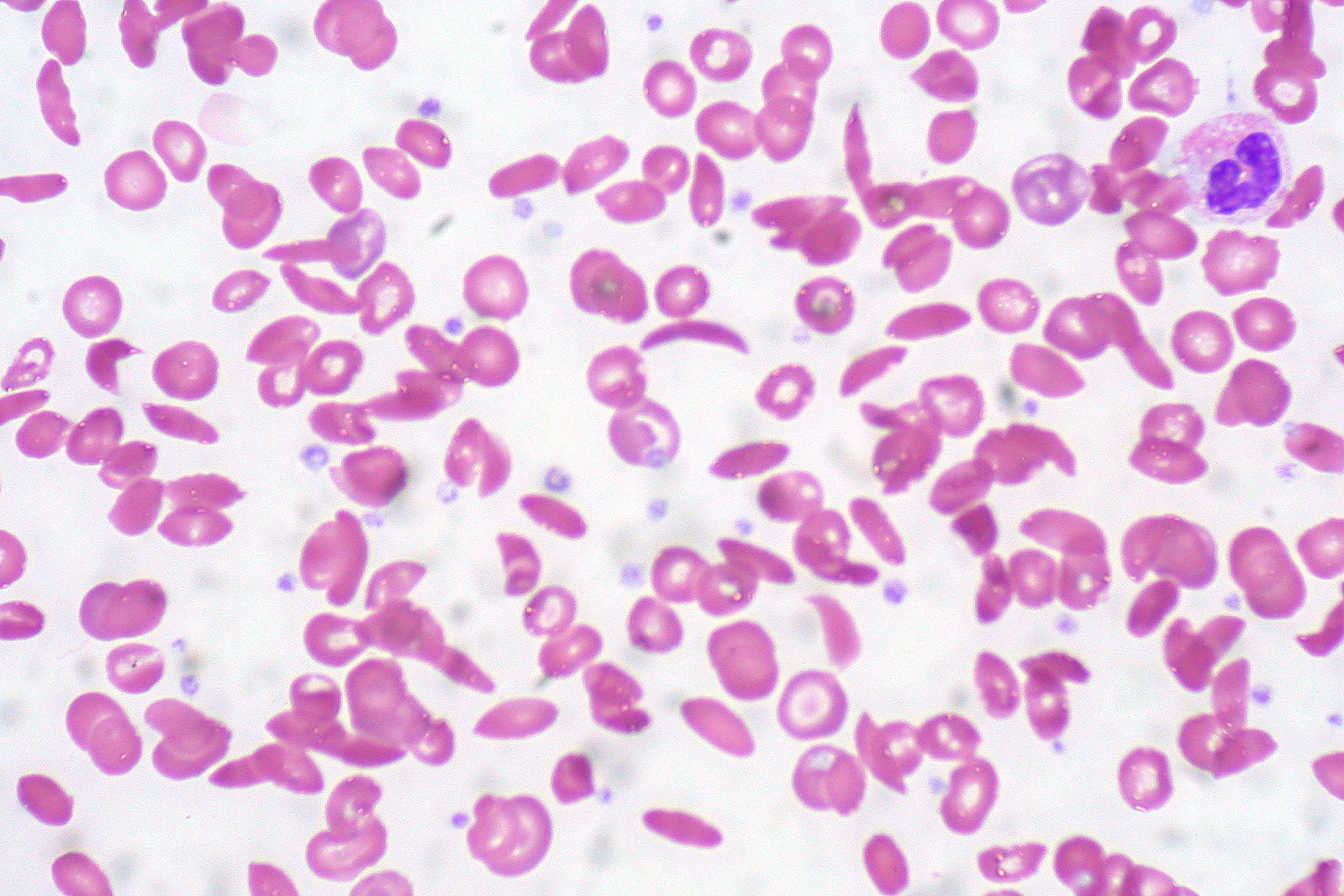Playlist
Show Playlist
Hide Playlist
Pediatric Sickle Cell Disease: Management
-
Slides Sicklecelldisease Pediatrics.pdf
-
Download Lecture Overview
00:01 One of the key mainstays of managements of these patients is by giving immunizations. 00:07 Remember, these children are at increased risk for encapsulated organisms. 00:11 This is because their spleens are ineffective. 00:14 So, we need to give both the 15 valent and 23 valent pneumococcal vaccines. 00:21 Also, we typically give them influenza vaccines to try to prevent chest crisis as a result of viral infection. 00:28 Last, these children should get meningococcal vaccines as well since meningococcus is also an encapsulated organism. 00:37 We will usually treat patients with a mainstay of two medications. 00:42 One is they will often early in childhood go on penicillin prophylaxis as a way of preventing pneumococcal illness. 00:50 Secondly, we try to put these patients on hydroxyurea. 00:55 Hydroxyurea will increase the percent of fetal hemoglobin that is in the blood. 01:00 This can reduce a number of complications including acute chest and pain crises, so these patients should be always on hydroxyurea. 01:10 There are other treatments we could try. 01:12 In severe cases, one could try a stem cell transplant, which is a challenging and complex care and requires immunosuppression, so we don’t want to do that all the time. 01:23 The other thing we will often do in acute crisis is we will do transfusions to try and keep their blood levels high and don’t let them become profoundly anemic. 01:35 So these patients have a myriad of problems in addition to just the sickling of the cells and we’re going to screen for these problems. 01:44 So we need to make sure we’re watching their blood pressure and that they’re not developing hypertension. 01:49 If they develop, we need to treat it. 01:51 We watch for cerebral complications. 01:55 We will screen for retinopathy. 01:57 These patients should have an eye doctor that they see regularly. 02:01 We watch for chronic lung disease. 02:03 We will keep an eye out for their pulmonary hypertension and they may get echos periodically. 02:09 One thing I like to emphasize is the role of poverty in the management of sickle cell disease. 02:14 It’s unfortunate in the U.S. that there is a maldistribution of poverty among patient populations who have more risk for sickle cell disease. 02:23 Because unlike other developed countries in the world, we don’t have an equal access to the health care system. 02:30 It’s unfortunate that these very patients who are poor sometimes are getting a less good care. 02:36 Perhaps, for example, they are less likely to get access to their hydroxyurea. 02:41 So it’s important that we have outreach programs that can reach out to poor patients with sickle disease. 02:49 One thing that happens in the hospital setting fairly frequently is dealing with an acute vaso-occlusive crisis. 02:57 So it’s very important in patients during an acute vaso-occlusive crisis that they get aggressive hydration. 03:03 This can prevent the endothelial damage from the sickled cells. 03:07 We typically give these patients hypotonic fluid, as these patients may have problems with sodium load because of renal dysfunction. 03:15 We will often transfuse for things like splenic sequestration or if they have an aplasia of their red blood cells as a result of an infection. 03:25 But what’s key around these patients is pain management. 03:29 If we’re unclear as to how best to manage these patients, we will often consult a pain specialist. 03:35 Sometimes these patients have registries within the hospital and they know what works well for them. 03:41 Another thing that I would point out as a side point is although these patients are at risk for increased clots, we do not routinely do prophylaxis for clots. 03:51 That’s my summary of sickle cell disease in children. 03:54 Thanks for your attention.
About the Lecture
The lecture Pediatric Sickle Cell Disease: Management by Brian Alverson, MD is from the course Pediatric Hematology.
Included Quiz Questions
All of the following are treatment options for vaso-occulsive crisis in sickle cell disease EXCEPT?
- Anticoagulation
- Aggressive IV fluids
- Blood transfusion
- Ketorolac
- Morphine
Which of the following vaccine(s) do you recommend for a child recently diagnosed with sickle cell disease?
- All of the vaccines given
- Influenza vaccine
- Pneumococcal 13-valent conjugate vaccine
- Pneumococcal 23-valent conjugate vaccine
- Meningococcal vaccine
Which of the following antibiotics is most appropriate as prophylactic treatment for pneumococcus in children with sickle cell disease?
- Penicillin
- Ceftriaxone
- Antibiotic prophylaxis is not advised
- Amoxicillin
- Clarithromycin
Which of the following medications is used in patients with sickle cell disease to promote fetal hemoglobin?
- Hydroxyurea
- Penicillin
- Desferoxamine
- Vitamin C
- Erythropoietin
Customer reviews
5,0 of 5 stars
| 5 Stars |
|
2 |
| 4 Stars |
|
0 |
| 3 Stars |
|
0 |
| 2 Stars |
|
0 |
| 1 Star |
|
0 |
Excellent overview of the management and complications of the disease.
I would definitely recommend the entire lecture series on Paedeatrics. The lecturer is very clear in making high yield points about each topic and everything is well explained. There is an effortless flow in his delivery, which ties in all the points made, in a nice orderly fashion. This makes it easy to wrap your head around the concepts being discussed.




